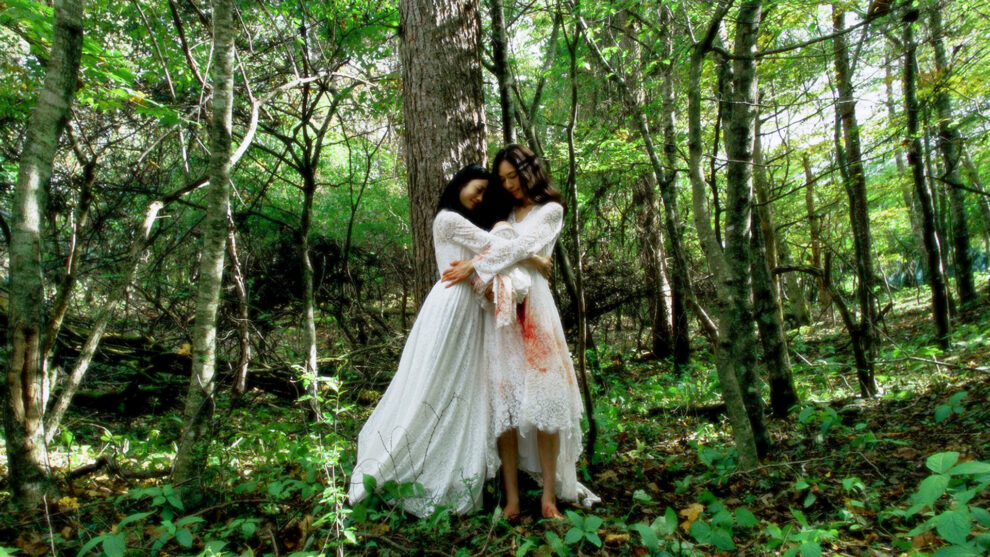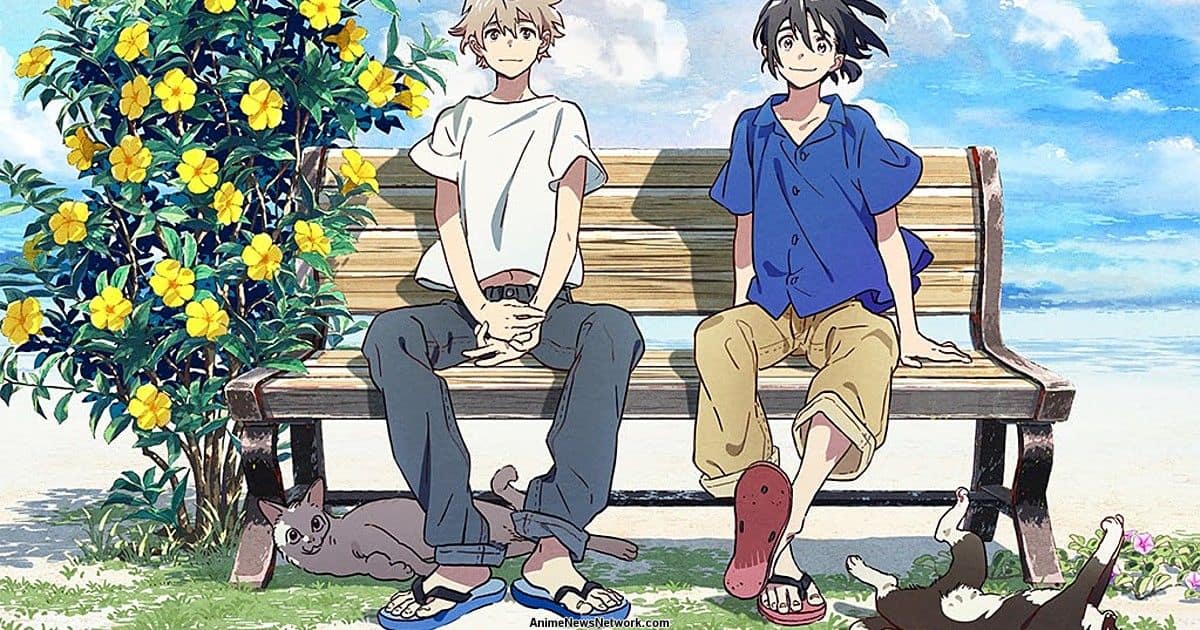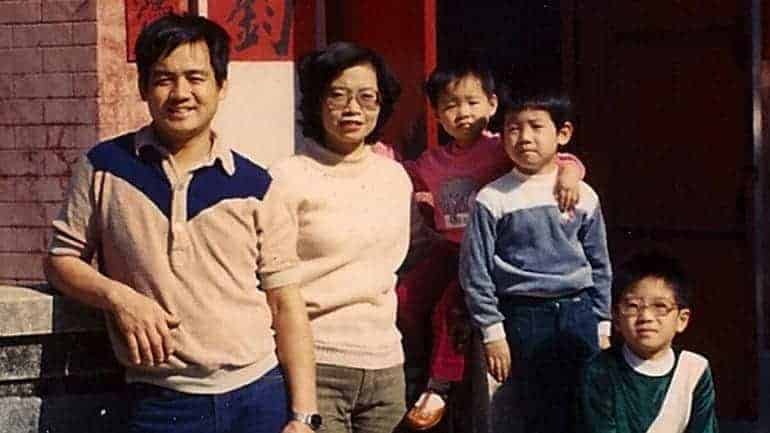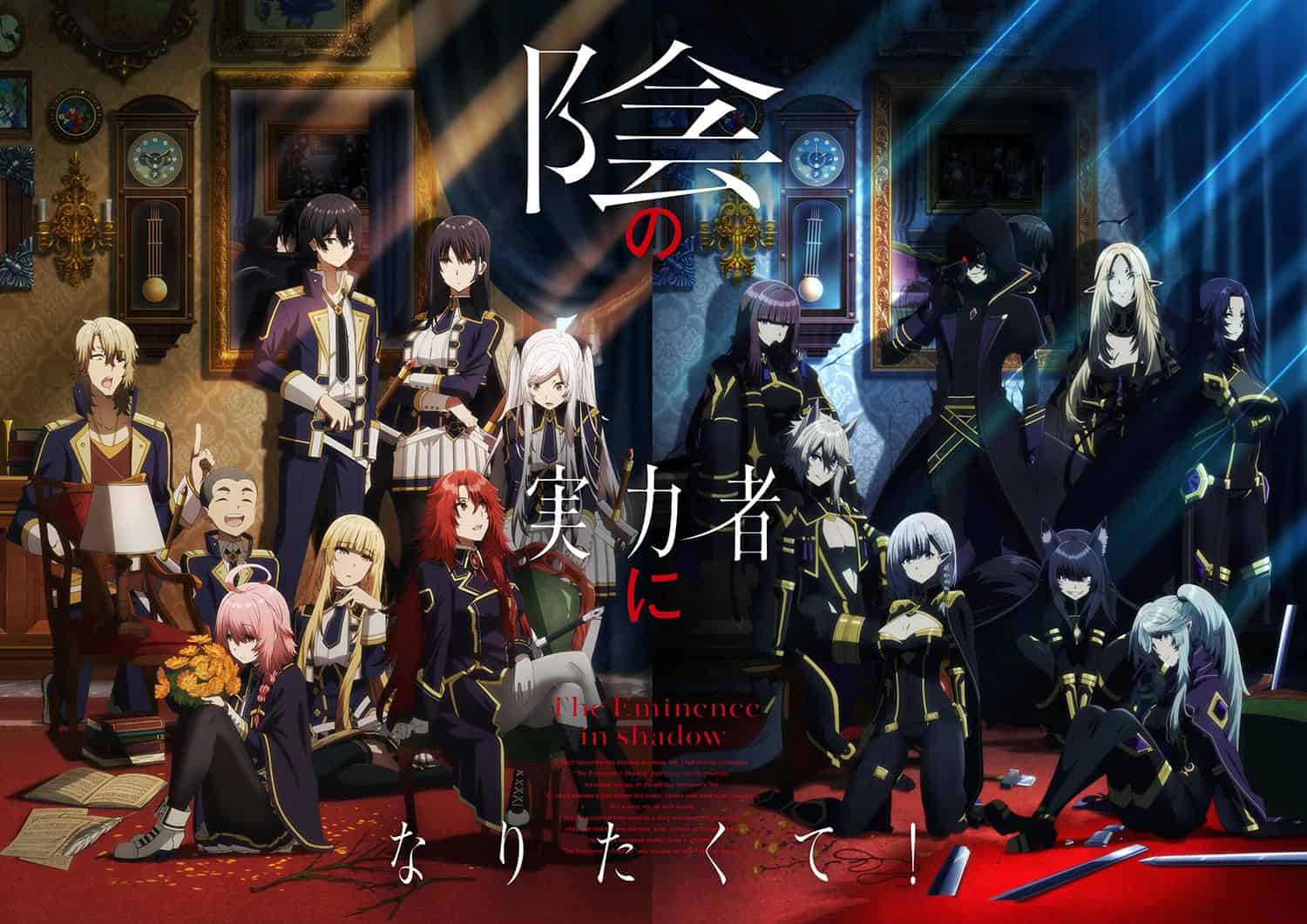Takeshi Kushida's debut, “Woman of the Photographs” was one of the best films of 2020. Three years later, the director returns with “My Mother's Eyes” , a film that also deals with the concept of ‘seeing', but on a whole different level.
My Mother's Eyes is screening at Skip City International D-Cinema Festival

Hitomi and her daughter Eri are cellists. The two seem to have a rather loving relationship, to the point of codependency on occasion. As the latter, however, seems to become more rebellious, a certain level of tension arises between them. One fateful night, after a magnificent duet at Eri's school concert, they are involved in a major car accident (?), from which they emerge badly injured. Hitomi loses her eyesight and Eri is paralyzed from the neck down. In her desperation, Hitomi stumbles upon a new, still experimental contact lens device invented by Dr. Tomio Miike, which will restore her vision, and contacts him immediately. The somewhat weird doctor soon appears in the hospital and takes her to his house, where, along with his son, Satoshi, manage to return her eyesight, through a device, though, that seems to need essentially constant maintenance, and charging every night.
Check also this interview
Meanwhile, Eri has fallen into depression due to her paralyzation, and her mother decides to help her by combining her new contact lens eyes with VR goggles connecting their two eyesights into a shared vision through web transmission. Thus, Eri begins to live her mother's life essentially as her own, with the two coming closer than ever. At the same time though, things in Miike's house become more and more weird, and Hitomi is not exactly sure how free she can be while wearing the particular lenses.
Takeshi Kushida directs a psycho thriller essentially, and the narrative will remind many of Kim Ki-young's films, although the sexual connotations are substituted by a mother-daughter relationship (and eventually a father-son one). The codependence that can frequently dominate this type of connections is implemented in extremes here, with the concept of the VR goggles essentially making the two women, one. And while the mother always seemed to want that, to create a daughter based on her own self, the way the daughter also starts to enjoy the concept, also because it is her only way out from the constant watching of the ceiling (as mentioned in the movie), definitely moves into the area of perversion. Especially since sex, violence, and in general, any experience the mother has, so does her daughter, as the two become more and more as one.
Through this concept, Kushida also plays with another one, with the question of what is reality, what virtual reality, and what simply imagination being a prevalent one in the film, also connected with cinema, and if what is depicted on screen is the truth or an illusion. This aspect is also embedded in the overall aesthetics, with both Yu Oishi's cinematography and Atsushi Gaudi's editing implementing it in a way that creates a sense of disorientation throughout the movie, resulting in an overall atmosphere that is one of the best traits here. The overall dreamy sense, that is implemented by the pace, the coloring, and the relatively low lighting, is impressive to watch on occasion, while the way violence and sex creep into the narrative is also outstanding. The frequent close ups to the eye bulbs, and the occasional bucolic scenes add even more to the aesthetics and the story, while the cello takes a form as terrific as the one we saw in Sion Sono's “Strange Circus” and even worse one could say. At the same time, the visual aspect finds another apogee during those scenes, which are definitely of the better-watched-than-described variety.
Considering how complex and intricate the story and the narrative as a whole are, there are moments that Kushida somewhat loses his grip on the medium, resulting in sequences that seem rather difficult to understand and even more difficult to perceive with logic. Furthermore, the extensive use of cello music does become a bit tedious after a fashion, particularly in the moments where the sound gets too loud for significant amounts of time.
On the other hand, the acting is on a very high level, with the majority of the actors portraying their characters with a combination of excessiveness, theatricality and apathy that works quite well for the overall atmosphere. Akane Ono as Hitomi is impressive throughout, with her ambiguous mentality being excellently portrayed, while Mone Shitara's ‘secret' smiles as Eri are among the highlights of the movie. Kosuke Hoshi as Miike and Takuma Izumi as Satoshi also function well in the mystery/disorientation scenes, but the finale, particularly for the former, could have been better, as his performance is too melodramatic.
“My Mother's Eyes” features a few issues that place it in a lower level than its predecessor, which also seemed to have a bigger budget. However, the combination of visuals and storytelling is once more exquisite, with Kushida gradually emerging as one of the most unique filmmakers in Japan.















